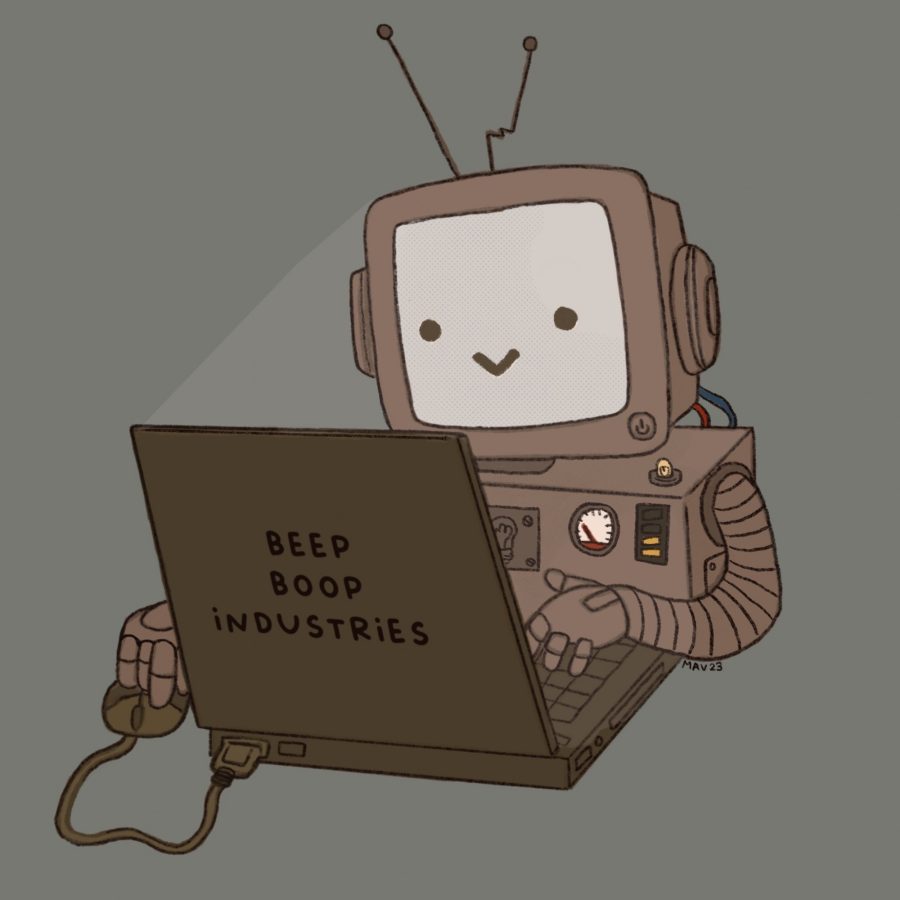On Jan. 7, two terrorists stormed the headquarters of a newspaper and gunned-down a dozen people because they were offended by the ideas their victims had published.
I was deeply shaken by the attack. When I choose a cartoon each night to print on this page, I never expect to be killed or arrested for my choice.
So, I admire the slaughtered journalists for their commitment to their beliefs; despite the repeated threats, Charlie Hebdo journalists continued to operate courageously according to their personal code of ethics.
It just so happens that my personal code of journalistic ethics looks a bit different from theirs.
That’s OK. It turns out, newspapermen and women have widely divergent views on the responsible use of the power of the press. Charlie Hebdo believes that its role in society rests on its willingness to, in the words of one Newsweek columnist, “speak truth to power,” and that speaking truth to power means drawing pictures of Muhammad in sexual positions.
But with Charlie Hebdo’s right to publish its cartoons comes my right to call (some) cartoons tasteless, racist and unproductive.
I find it funny to draw attention to the hypocrisies of Muslim fundamentalists, which is why I laughed at a Charlie Hebdo cartoon depicting an ISIS fighter about to behead the prophet. But when the punchline of the joke is that the cartoonist is willing and able to malign an oppressed minority, I find it profoundly unfunny.
I’ve been frustrated by some journalists’ inability to see this distinction. From Jonathan Chait at New York Magazine to Ross Douthat at The New York Times, many have argued that supporting the slain cartoonists should mean supporting the content of their cartoons. Teju Cole at The New Yorker summed up my feelings perfectly when he wrote that “it is possible to consider Islamophobia immoral without wishing it illegal.” Of course, in a country where we struggle with considering homosexuality immoral without wishing it illegal, is it so surprising that we’re having difficulty?
The rules of a liberal society may grant the right to distribute flyers emblazoned with the name of God in Orthodox Jewish neighborhoods or to organize neo-Nazi marches outside a predominantly-black church, but that doesn’t mean using the rules in that way makes you a champion of liberal society. It makes you an asshole.
For the Charlie Hebdo columnists and many others on the French left, insulting religion is an inherent good. I, on the other hand, choose not to participate in such ugliness because I believe that a public sphere is made free not through the absence of any religion but through the presence of all religion.
I also believe in freedom of the press, which is why I’m just as worried about the 24 American journalists who were arrested for reporting the Ferguson protests as I am about eulogizing the French free speech martyrs. While the world celebrates the million-man marches through the streets of Paris expressing support for the principle of free speech, I’m still concerned about last summer’s pro-Palestinian demonstrators, who were threatened with up to three years in French prisons for exercising that principle. My opposition to terrorism manifests itself not only in concern about the attack in Paris but also in the 2000 mostly-Muslim Nigerians murdered by Boko Haram this week and the NAACP building in Colorado that was just bombed.
The overwhelming focus on Charlie Hebdo and lack of a corresponding commitment to enforcing these values in other instances forces me to ask: How much of the #JeSuisCharlie movement is an expression of support for free speech in its most absolutist form, and how much is it an expression of the fact that we just really hate Muslims? How much is it an expression of the fact that we support journalists so long as they publish the stories we want to hear, support protestors so long as they are mostly white and mourn terror victims so long as they fit our narrative of “them” hating “us”?
As much as one can ever “learn” anything from senseless tragedy, the lesson of the Charlie Hebdo massacre ought to be a renewed understanding of the gravity of the press’ power and the sacred responsibility of free speech.
We need to interrogate the reason that stories like this resonate so powerfully while others draw so little attention. It’s time for the news to shut up about #JeSuisCharlie and start demonstrating a real commitment to freedom by reporting on its abuse.
We all know that we have the right to say anything we desire. What’s much more difficult, though, is exercising that right in thoughtful ways.
_______________
Jacquelyn Oesterblad is the opinions editor. Follow her on Twitter.








